5 Essential Things to Know Before Taking a Road Trip During COVID-19
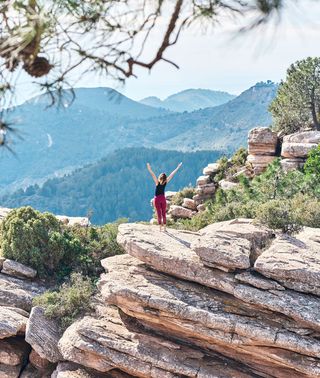
Editor’s Note: This story was published with current COVID-19 guidelines in mind. Since these guidelines are changing regularly and vary by location, please check with official state and local websites before you travel or make travel plans.
Since quarantine began in March, it's safe to say that my risk-averse and hermit tendencies have really come out in full force. Besides my partner and immediate family, I haven't come into contact with anyone in person or even stepped foot inside a store (except for the occasional socially distanced grocery run) in the last eight months, so leaving the city felt completely out of the question.
But last month, I took a short road trip with my partner from Los Angeles to the Grand Canyon and Sedona, Arizona. Before I even started writing this piece, I could already feel my nerves getting the best of me. While the change of scenery was immensely helpful for my mental health, I know that even being able to go on a trip, with all the safety precautions in place, stems from a highly privileged position. Going into this road trip, I wanted to be as safe and cautious as possible, so I can walk you through my experience preparing for it.

While car travel presents less of a chance for close contact with other people than flying, the Centers for Disease Control and Prevention (CDC) cites that the best way to protect yourself and others from the virus is to stay at home, so it's important to understand the risk involved. Be sure to check the local and state COVID-19 regulations and mandates before you travel. Although, you should be prepared to err on the side of caution. For example, I kept my mask on at all times while hiking, with the exception of a rare photo op, even though that was, unfortunately, not a common occurrence on the trails.
Ahead, see my personal tips and recommendations on how to take a safer road trip as well as my favorite wellness and feel-good essentials that I brought with me on the road.
Prepare a Sanitization Kit
A typical sanitization kit would include extra masks, hand sanitizer with at least 60% alcohol (CDC recommendation), disinfecting wipes, disposable gloves, and anything else you may need to help fight off germs. Keep your kit either on you or in a place that is easily accessible.
Book a Place With Contactless Check-In
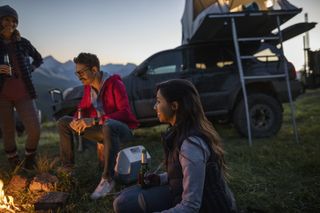
While this might not be an option for everyone, most hosts from sites like Airbnb and Vrbo will often list if they offer contactless check-in. You can also call ahead to your hotel or rental and see if they are able to accommodate this request.
Limit Going Inside Gas Stations and Rest Stops
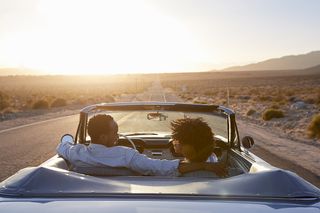
Try to avoid going indoors to pay for gas or when getting food as much as possible. When it comes to rest stops, look for ones without lines and take the same sanitary precautions: wiping down high-touch surfaces like door handles, light switches, and bathroom sinks.
Tip Generously

It should go without saying that employees in the service industry, much like healthcare professionals, are putting themselves at risk every day at work. If you see an opportunity to monetarily thank someone for their service, whether you're at a gas station or getting takeout from a local restaurant, please do so generously.
Make a Post-Trip Plan of Action

Traveling anywhere new, no matter if you went to a new city or country, puts you at a greater risk of exposure to the virus. As a courtesy to protect others, make a plan of action when you return, such as getting a COVID test or self-quarantining for 14 days.
My Road Trip Wellness Essentials

I pulled out this card game to "play” with my partner when we needed a break from our podcast and playlist rotation during the drive. This beautiful deck of cards from Actually Curious is filled with questions to help facilitate meaningful conversation and help you gain a deeper understanding of your peers. We wound up spending an hour talking about our values, goals, what we're grateful for, and much more from the deck's thought starters. I'll definitely be picking this game up again on my next Zoom hangout with friends.
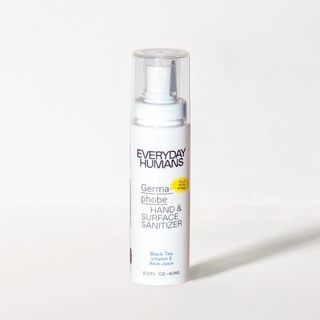
Besides a mask and disinfecting wipes, this is the only other true "essential” that I needed on me at all times. Of course, any hand sanitizer will do, but I love this one from Everyday Humans because of its scent and skin-loving ingredients but also because the spray nozzle makes it easier for me to clean high-touch surfaces (like my phone) and to give my fabric mask a refresher. It's always important to note that hand sanitizers do not replace regularly washing your hands with soap and water, but it is useful to have as an added precautionary step.
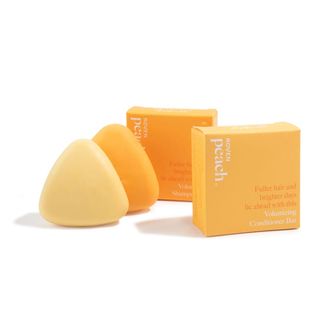
One of my favorite parts of any vacation growing up was the opportunity to smuggle little bottles of toiletries home from every new hotel room. The irony is that I would never actually wind up using them. Instead, these tiny vials of lotion and bodywash would sit on my bathroom shelf gathering dust, only to serve as my personal trinkets from the trip.These days, I’m more particular about the products I like and use on a regular basis and am a lot more conscious about the amount of plastic that goes into creating these travel-size toiletries. I’ve been slowly making the switch to lower-waste options lately, like shampoo and conditioner bars, in lieu of their bottled counterparts. I like the versions from Peach in particular because they give life to my otherwise flat and dull strands. The best part is that they’re so easy to travel with!
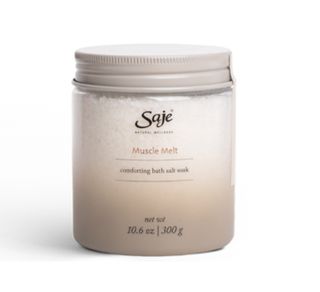
There’s nothing quite like settling into a nice, hot bath at the end of a jam-packed day of sightseeing or simply just after a long drive. If you know, you know. And as a bath enthusiast, it’s one vacation ritual that I cherish the most. I swear by any Epsom salts, but the aroma from Saje’s Muscle Melt Bath Salts immediately puts me in a dream-like state. Its intoxicating blend of essential oils, which consists of rosemary, sweet birch, and Roman chamomile, among others, really helps me to unwind and decompress from an exhausting day. Add in a good page-turner or a favorite podcast into this bath time routine, and it's total bliss.

I’ve been sober curious for a while now. While I love the taste and ritual of an occasional glass of natural wine, my body doesn’t always feel the same way. So whenever I’m looking to take the edge off, I’ll opt for a CBD-infused beverage instead. I brought Sweet Reason’s new Evening Blends on this recent road trip as a nightcap after dinner or during a nightly bath. Apart from the lovely and delicate flavor (my favorite is Peach Jasmine), I also love that the drinks are packed with calming herbs like chamomile and lemon balm as well as good-for-you adaptogens. Up next, How the Founder of Chillhouse Adapted Her Wellness Rituals After Becoming a Mom
Disclaimer
This article is provided for informational purposes only and is not intended to be used in the place of advice of your physician or other medical professionals. You should always consult with your doctor or healthcare provider first with any health-related questions.

